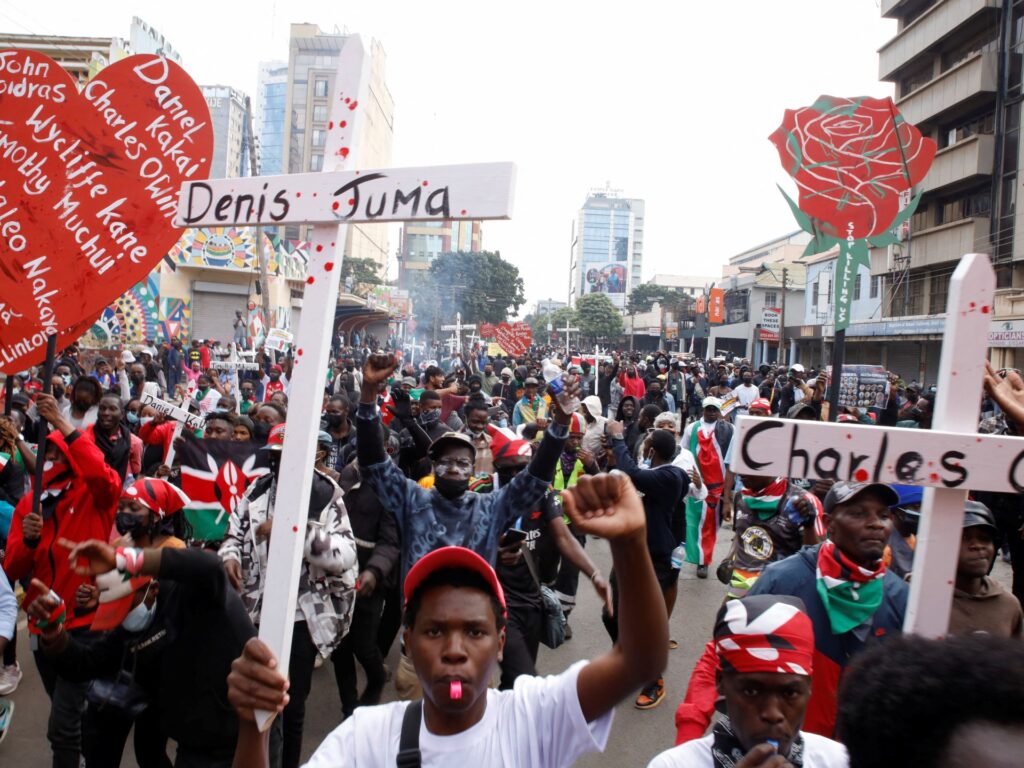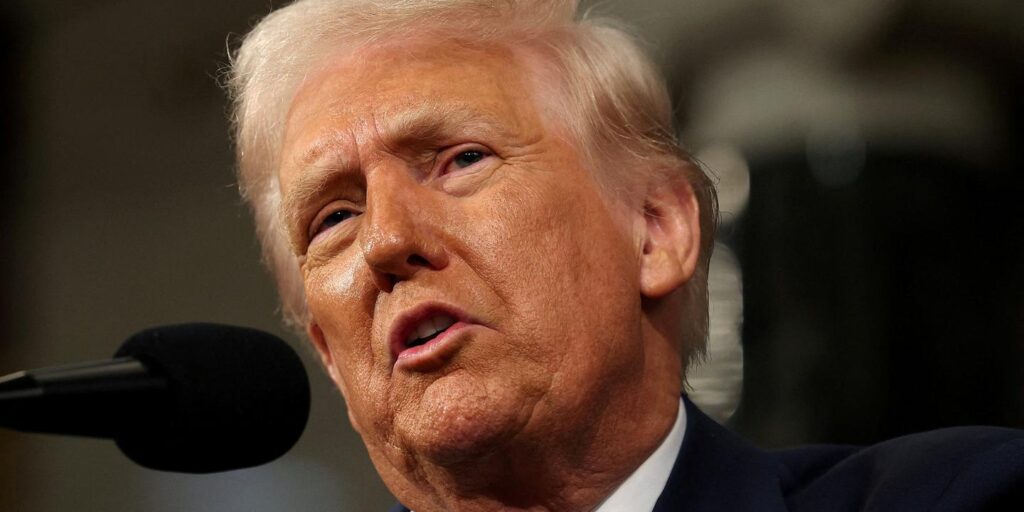In Kenya, as in many countries across the world, street protests are often framed as the unfortunate result of political failure. As the logic goes, the inability of state institutions to translate popular sentiment into political, legislative and regulatory action to address grievances undermines trust and leaves the streets vulnerable to eruptions of popular discontent.
In this telling, protests are viewed as a political problem with grievances expected to be legitimately addressed using the mechanisms – coercive or consensual – of the formal political system.
Like its predecessors, the increasingly paranoid regime of Kenyan President William Ruto has also adopted this view. While generally acknowledging the constitutional right of protest, it has sought to paint the largely peaceful and sustained Generation Z demonstrations and agitation of the past 16 months, which have questioned its rule and policies, as a threat to public order and safety and to delegitimise the street as an avenue for addressing public issues.
“What is going on in these streets, people think is fashionable,” Ruto declared a month ago. “They take selfies and post on social media. But I want to tell you, if we continue this way, … we will not have a country.”
The killing and abductions of protesters as well as the move to charge them with “terrorism” offences, borrowing a leaf from Western governments that have similarly criminalised pro-Palestinian and antigenocide sentiments, are clear examples of the state’s preferred response. At the same time, there have been repeated calls for the protesters to enter into talks with the regime and, more recently, for an “intergenerational national conclave” to address their concerns.
But framing protests as a dangerous response to political dissatisfaction is flawed. Demonstrations are an expression of democracy, not the result of its failures. The Generation Z movement has shown that transparency, mutual aid and political consciousness can thrive outside formal institutions. Activists have made the streets and online forums sites of grievance, rigorous debate, civic education, and policy engagement.
They have raised funds, provided medical and legal aid, and supported bereaved families, all without help from the state or international donors. In doing so, they have reminded the country that citizenship is not just about casting ballots every five years. It is about showing up – together, creatively and courageously – to shape the future.
The Generation Z movement is in many respects a reincarnation of the reform movement of the 1990s when Kenyans waged a decadelong street-based struggle against the brutal dictatorship of President Daniel arap Moi. Today’s defiant chants of “Ruto must go” and “Wantam” – the demand that Ruto be denied a second term in the 2027 election – echo the rallying cries from 30 years ago: “Moi must go” and “Yote yawezekana bila Moi (All is possible without Moi).”
Centring the struggle on Moi was a potent political strategy. It united a broad coalition, drew international attention and forced critical concessions – from the reintroduction of multiparty politics and term limits to the expansion of civil liberties and, crucially, the rights of assembly and expression.
By the time Moi left office at the end of 2002, Kenya was arguably at its freest, its spirit immortalised in the Gidi Gidi Maji Maji hit I Am Unbwogable! (I Am Unshakable and Indomitable!)” But that moment of triumph also masked a deeper danger: the illusion that removing a leader was the same as transforming the system.
Moi’s successor, Mwai Kibaki, hailed then as a reformist and gentleman of Kenyan politics, quickly set about reversing hard-won gains. His government blocked (then tried to subvert) constitutional reform, raided newsrooms and eventually presided over a stolen election that brought Kenya to the brink of civil war.
One of his closest ministers, the late John Michuki, had in 2003 revealed the true mindset of the political class: Constitutional change to devolve the power of the presidency, he claimedwas necessary only so “one of our own could share power with Moi”. Once Moi was gone, he averred, there was no longer need for it.
Due to the obstruction from the political class, it took Kenyans close to a decade after Moi’s departure to finally promulgate a new constitution.
Generation Z must avoid the trap of the transition of the 2000s. Power, in the Kenyan political imagination, has often been the prize, not the problem. But real change requires more than a reshuffling of names atop the state. It demands a refusal to treat state power as the destination and a commitment to reshaping the terrain on which that power operates. And this is where the youth should beware the machinations of a political class that is more interested in power than in change.
Today’s calls for national talks and intergenerational conclaves emanating from this class should be treated with suspicion. Kenyans have seen this play out before. From the 1997 Inter-Parties Parliamentary Group talks and the negotiations brokered by former UN Secretary-General Kofi Annan after the 2007-2008 postelection violence to the infamous “handshake” between President Uhuru Kenyatta and his rival Raila Odinga and the failed Building Bridges Initiative, each of these elite pacts was presented as a way to translate popular anger into meaningful reform. Yet time and again, they only served to defuse movements, sideline dissenters and protect entrenched power.
Worse still, Kenya has a long history of elevating reformers – from opposition leaders and journalists to civil society activists – into positions of state power, only for them to abandon their principles once at the top. Radical rhetoric gives way to political compromise. The goal becomes to rule and extract, not transform. Many end up defending the very systems they once opposed.
“Ruto must go” is a powerful tactic for mobilisation and pressure. But it should not be seen as the end goal. That was my generation’s mistake. We forgot that we did not achieve the freedoms we enjoy – and that Ruto seeks to roll back – through engaging in the formal system’s rituals of elections and elite agreements but by imposing change on it from the outside. We allowed the politicians to hijack the street movements and reframe power and elite consensus as the solution, not the problem.
Generation Z must learn from that failure. Its focus must relentlessly be on undoing the system that enables and sustains oppression, not feeding reformers into it. And the streets must remain a legitimate space of powerful political participation, not one to be pacified or criminalised. For its challenge to formal state power is not a threat to democracy. It is democracy.
The views expressed in this article are the author’s own and do not necessarily reflect Al Jazeera’s editorial stance.


